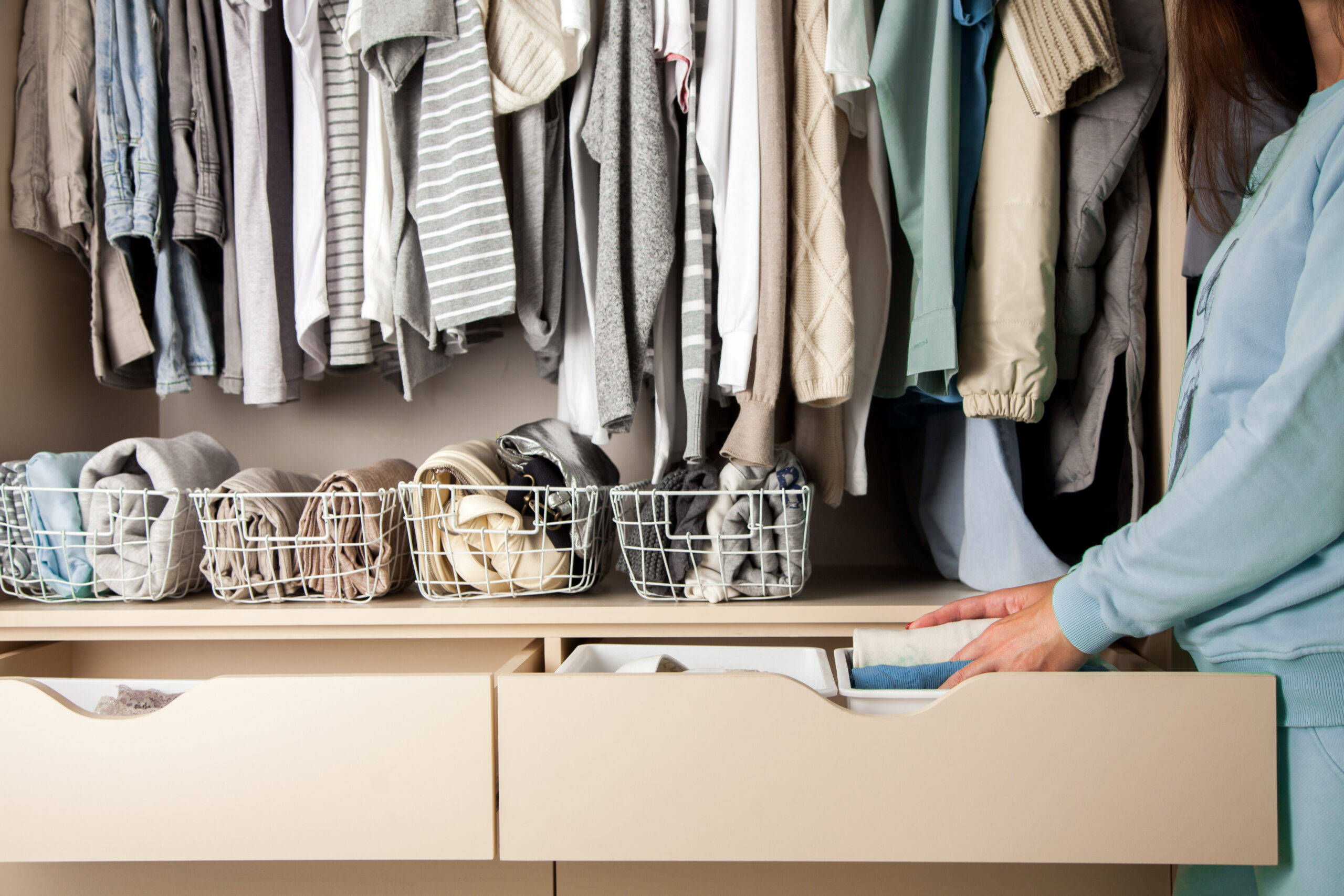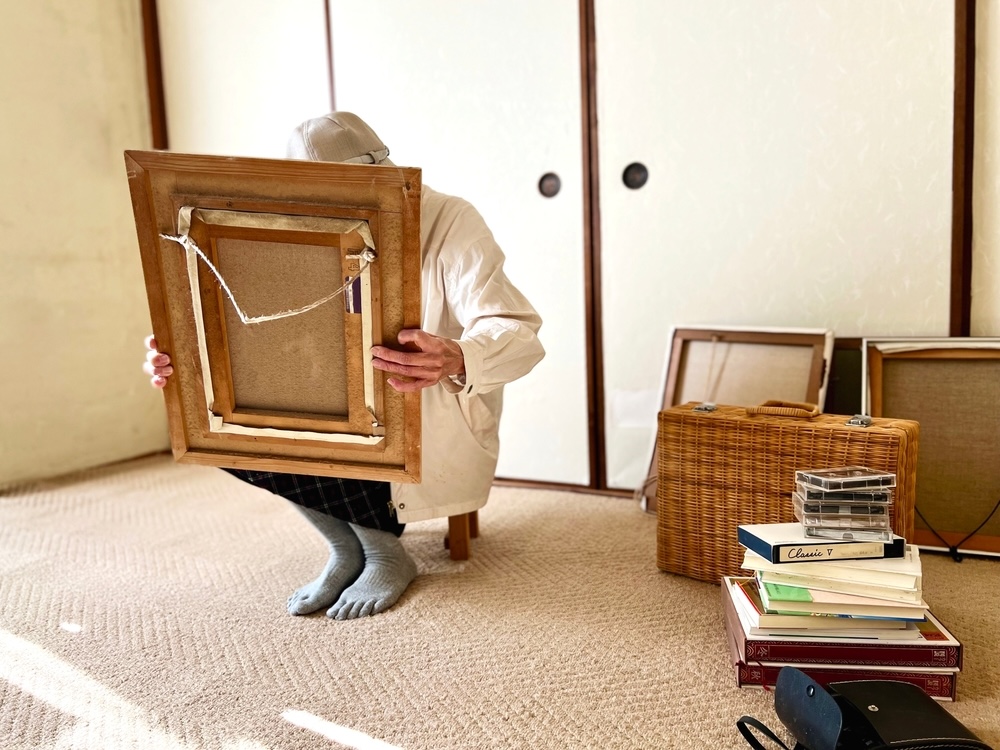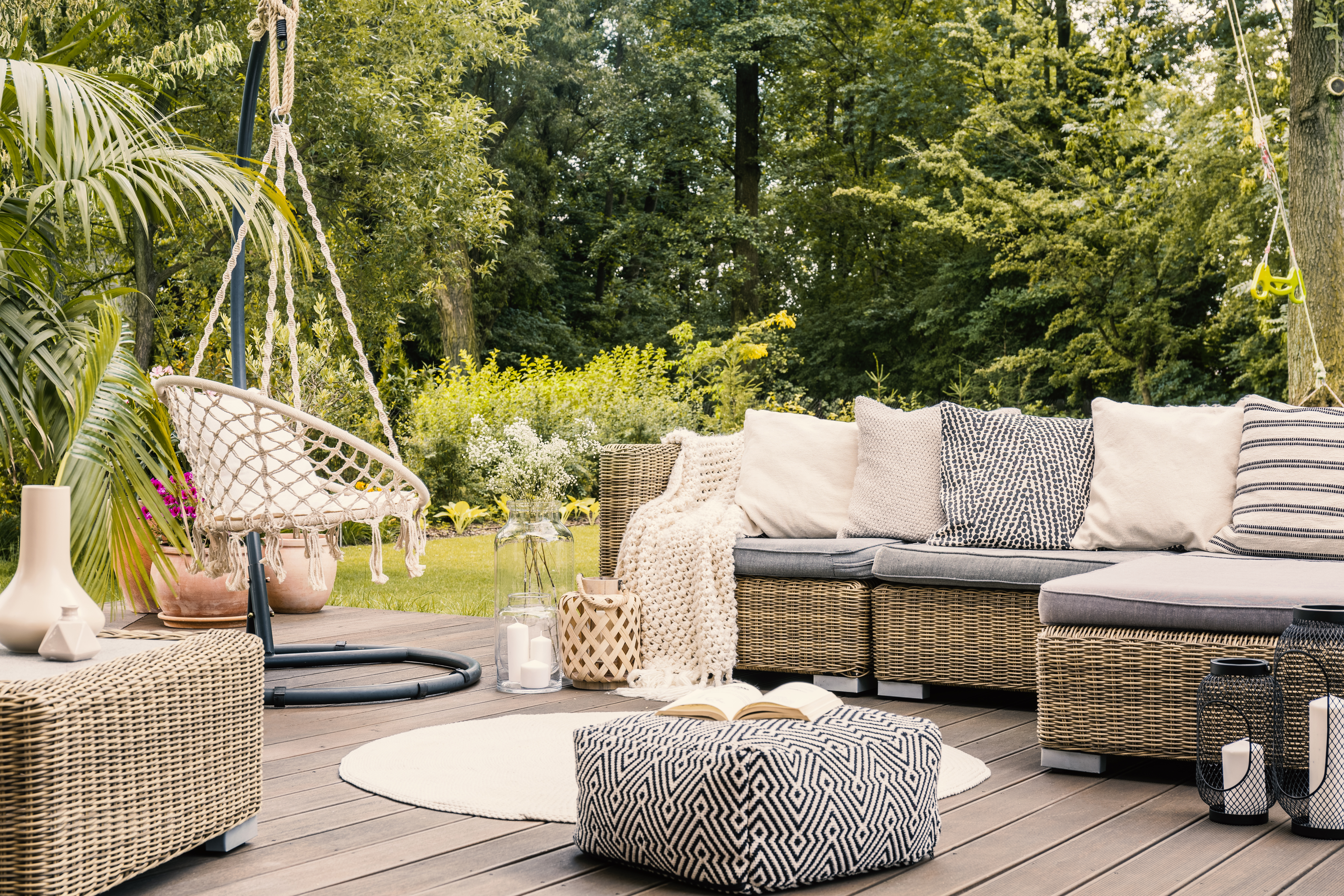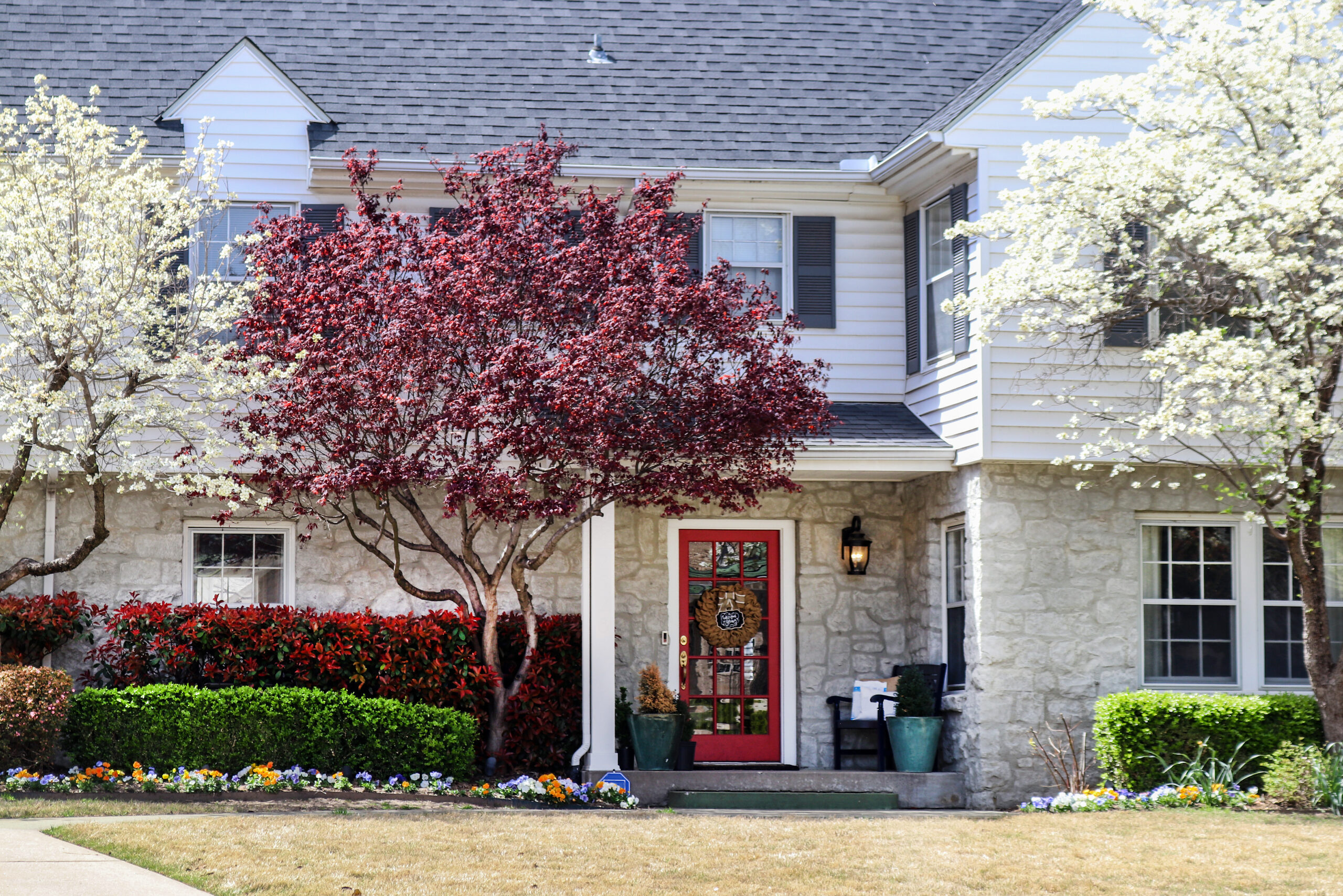As home sizes shrink (down 6% since 2016), the impact of clutter is becoming more noticeable, prompting many Americans to reexamine their organization habits. With less room to hide the mess, everyday disorganization can feel overwhelming.
Besides being inconvenient, it’s also costly. 60% of Americans say they’ve repurchased items they already owned but couldn’t find, showing that clutter can lead to unnecessary spending at a time when many are already tightening their budgets.
The emotional toll is just as real. From guilt and frustration to full-on stress, clutter doesn’t just take up space — it weighs on your mental well-being. To understand how widespread the issue is, we surveyed Americans about their storage and organization habits and uncovered some surprising truths.
Article takeaways
- Over 1 in 5 of Americans hide their bedroom from guests due to clutter.
- 37% of Americans wait a week or more to fold laundry piles.
- Nearly 3 in 10 people were unaware that makeup has an expiration date.
- 67% of Americans say lack of storage space contributes to clutter, and 31% feel frustrated by the clutter in their homes.
- 53% of Americans have found dead bugs, moldy food, or expired items while decluttering their home.
More than 1 in 4 Americans Hide Their Cluttered Bedrooms from Guests
Nearly a quarter of Americans would never show their bedrooms to guests because of clutter. These everyday spaces become overwhelmed over time, and when people finally declutter, they often find surprising — and sometimes embarrassing — things hiding underneath, such as:
- Expired medication, makeup, or hygiene products (25%)
- Dead bugs (18%)
- Moldy food (11%)
- Forgotten cash or checks (10%)
- Unidentifiable items (9%)
- Pet accidents (5%)
Cluttered bedrooms cause more than stress. They can lead to anxiety, social withdrawal, and even health risks from hidden mold or pet accidents. The mess makes it difficult to invite guests over and can prevent your space from feeling truly comfortable and welcoming to you.
This is a common problem, but frequent decluttering combined with smart storage solutions can help keep clutter under control. By managing these spaces better, welcoming people into your home becomes less stressful.
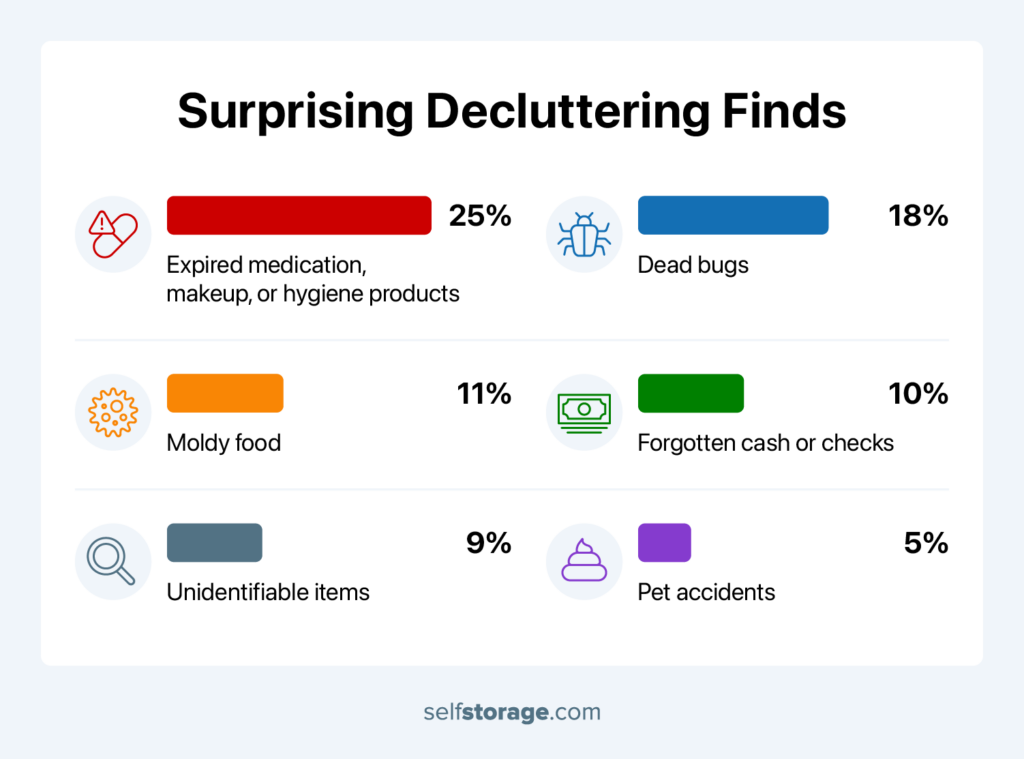
63% of People Ignore Laundry Piles for a Day or Longer
Laundry starts small, but quickly piles up. Only 36% of people fold it as soon as it’s dry, while the majority admit to some delay:
- 27% fold within a day or two
- 22% fold once a week
- 12% say there’s always a pile
- 2% avoid folding as long as possible
Whether it’s a bundle of dirty clothes or a pile of clean laundry just waiting for you to fold, procrastination can turn them into your own personal Mount Washmore, much like stacks of papers, dishes, or forgotten items scattered throughout other rooms. These small clutter spots can combine to make your whole home feel overwhelming.
Tackling piles of stuff bit by bit helps keep it from piling up and makes your home feel like a more inviting, enjoyable space that you can feel good about sharing with others.
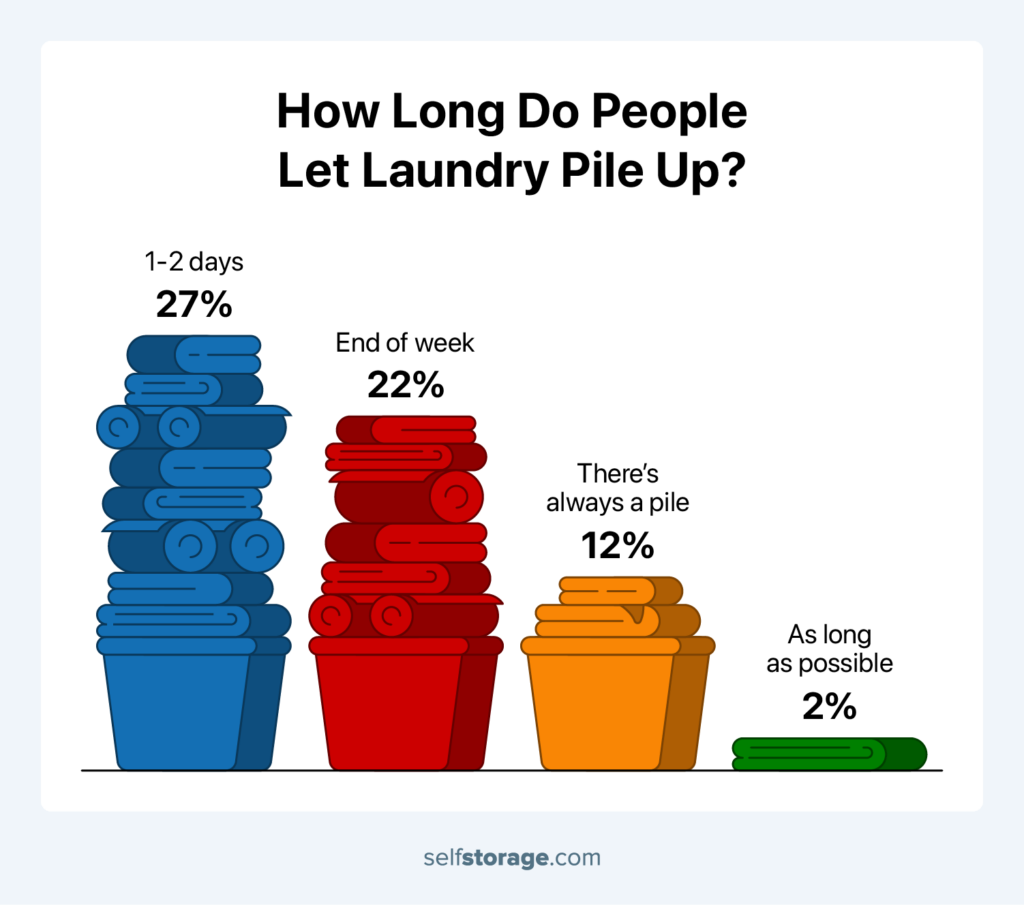
Nearly 1 in 3 Didn’t Know Beauty Products Expire
Clutter often starts with small, everyday habits, like forgetting to discard old makeup or expired pantry items. Our survey found that 29% of people didn’t know makeup expires, and one in three Americans keep it for a year or more before tossing.
It’s not surprising that 25% of Americans have found expired makeup while decluttering their homes. These small habits can quietly add up over time, turning your space into a clutter hotspot before you realize it. Beyond creating clutter, forgotten items can also be a cue to rethink what you actually use — and how that shapes your buying habits.
One Redditor shared a cautionary tale about using expired makeup:
“I decided to try out an old Urban Decay foundation — about six months to a year out of date — and thought nothing of it. I used to love the formula, but this time it kind of stung. The next morning, I woke up with red, inflamed spots all over one side of my face. I never break out, so I genuinely thought I was sick. Then I checked the bottle and realized it was expired. Definitely a hit or miss using old makeup — there are real risks.”
This story and the survey data remind us that being organized isn’t just about keeping spaces tidy — it starts with mindfulness at home. It’s also about protecting your health against expired products and avoiding unnecessary clutter that builds up when we keep items beyond their ideal use.
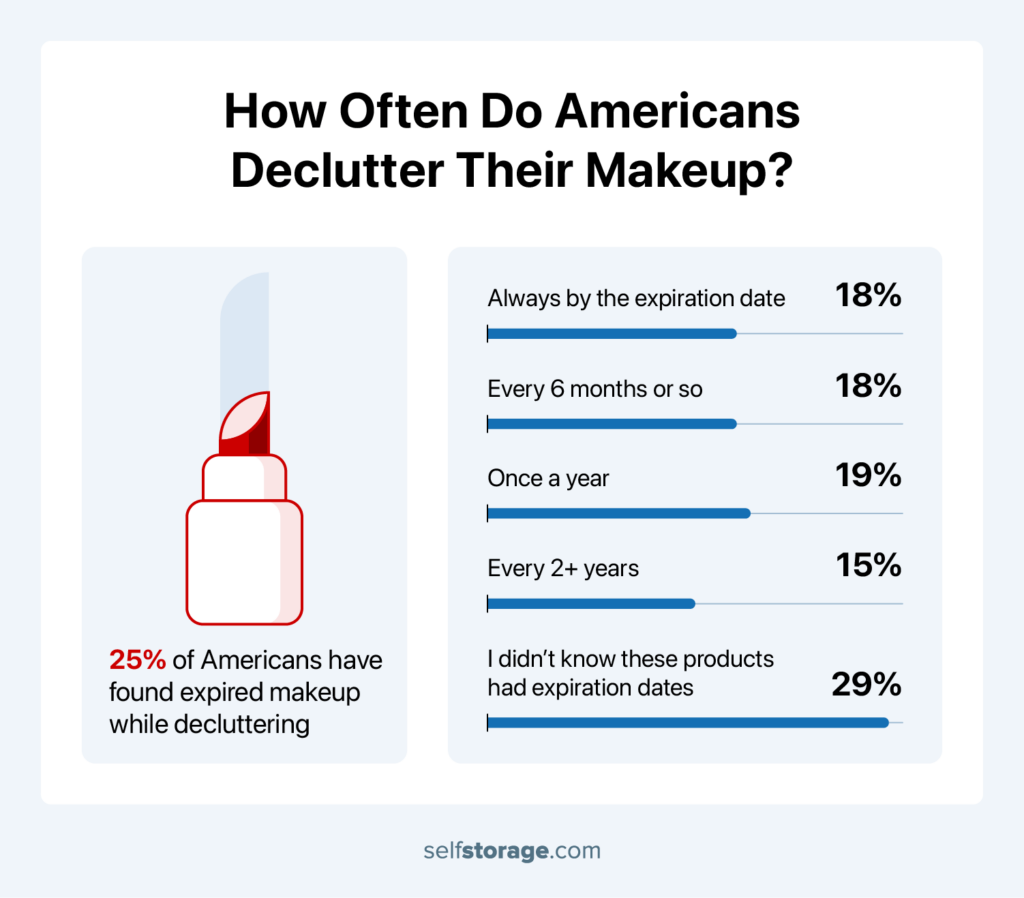
The Hidden Toll of Clutter on Your Health and Wallet
Clutter isn’t just a storage issue — it affects people emotionally and financially. Its impact can ripple through many areas of your life, causing unnecessary financial strain and making daily life more stressful.
Here’s how clutter is affecting Americans:
- 31% of people feel frustrated by home clutter, as disorganization can make daily tasks harder and contribute to a constant sense of stress.
- 29% experience anxiety in cluttered environments, which can feel overwhelming for people who function better in calm, tidy, or more minimal spaces.
- 10% feel guilty for letting clutter build up, often because it feels like something they should be on top of — but busy schedules or lack of time can make it hard to keep up.
Home clutter impacts people emotionally in different ways, but at its core, it can bring up negative feelings in a space that should feel safe and relaxing.
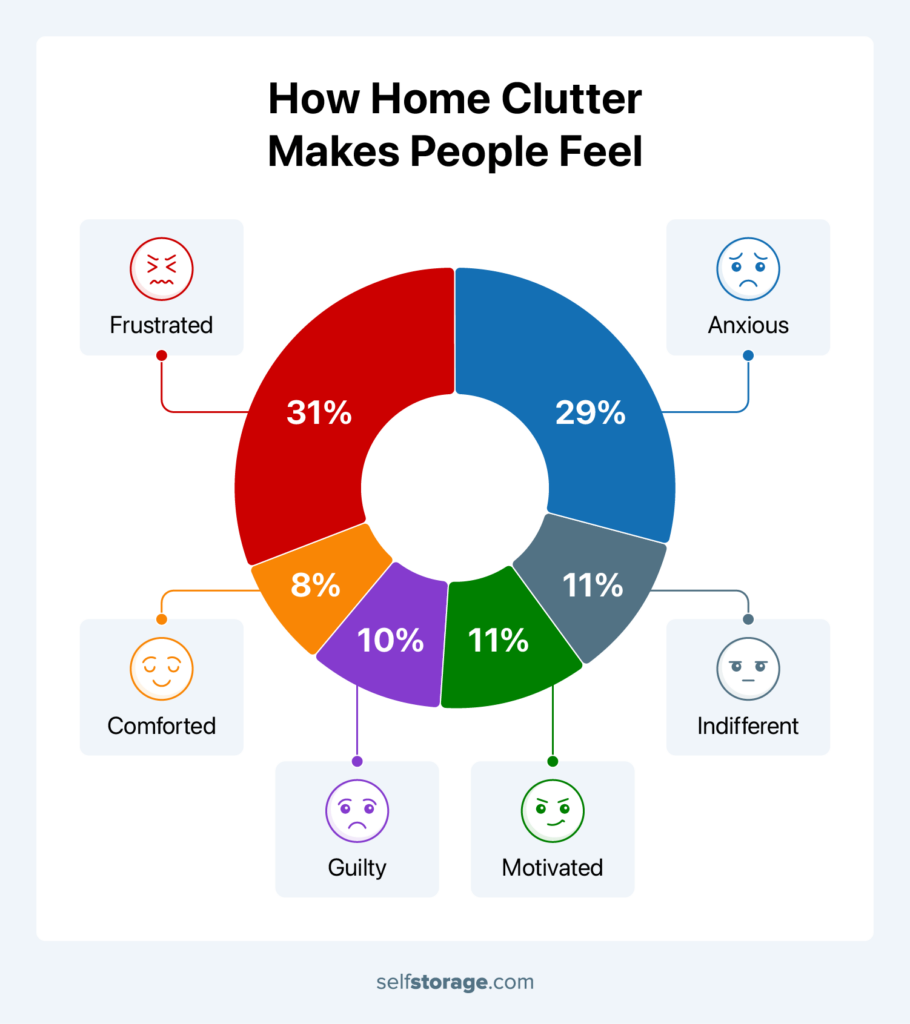
The impact isn’t just emotional; 60% of people have repurchased lost items due to clutter, leading to unnecessary impulse buying and reinforcing the cycle of over-accumulation.
67% of Americans Feel Lack of Storage Contributes to Clutter
While clutter often builds up from small, everyday habits — like not putting things back where they belong or letting expired items sit for too long — a lack of adequate storage is also a major factor. And with housing shrinkflation decreasing home sizes, it is becoming more common to have less storage space in your home.
Staying on top of clutter as it happens is key, but without the right systems in place, it’s easy for things to pile up. That’s why many people say they’d feel more organized with better storage solutions — things like shelves, bins, or closet organizers.
Other popular organization tips include:
- Reducing belongings (35%)
- Dedicating more time to organizing (17%)
- Working with a professional organizer (10%)
- A dedicated decluttering schedule (9%)
The right storage setup and consistent organization habits can transform your space into a calm and inviting place — somewhere you’re proud to live in and comfortable welcoming others into. And if home solutions aren’t enough, using external long-term storage solutions helps relieve the pressure, letting you focus on working through the clutter.
Want to take the first step?
Start small by decluttering a single drawer — or explore storage options to help you reclaim your space without giving anything up.
Methodology
The survey of 1,000 adults ages 18 and over was conducted via SurveyMonkey Audience for SelfStorage.com, LLC on May 7th, 2025. Data is unweighted and the margin of error is approximately +/-3% for the overall sample with a 95% confidence level.
FAQs
- Declutter spaces frequently
- Create designated spaces for items in your home
- Establish a consistent cleaning routine
- Utilize storage solutions like shelves and baskets, or external solutions like storage units
- Shift to task-based cleaning to break big messes into smaller, manageable steps
- Use the two-minute rule to reduce procrastination. Immediately completing any task that takes two minutes or less
- Creating designated spots for everyday items like keys, mail, and bags
- Using storage bins, shelves, or drawer organizers to group similar items
- Sticking to a “one in, one out” rule when buying new items
- Setting a weekly routine to tidy up and reset high-traffic areas
- Clear out any obvious trash or things that don’t belong
- Categorize similar items that belong together, like chargers with tech accessories or pens with office supplies
- Cut out items that no longer fit in this space
- Contain what remains in a way that fits your needs and the space, such as using shelves or baskets


